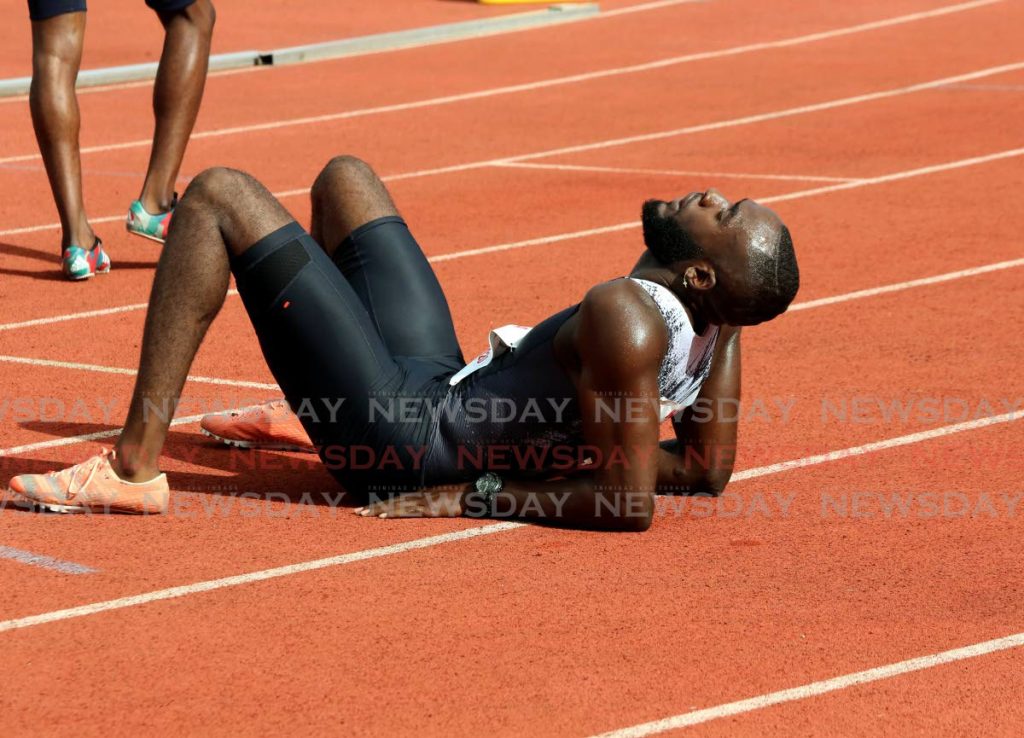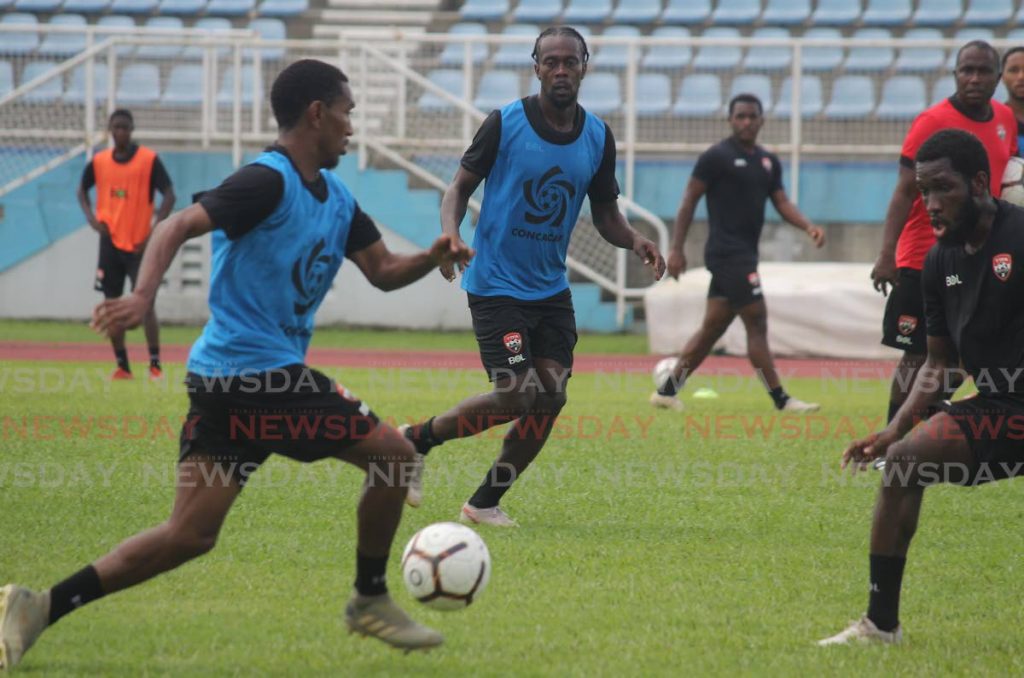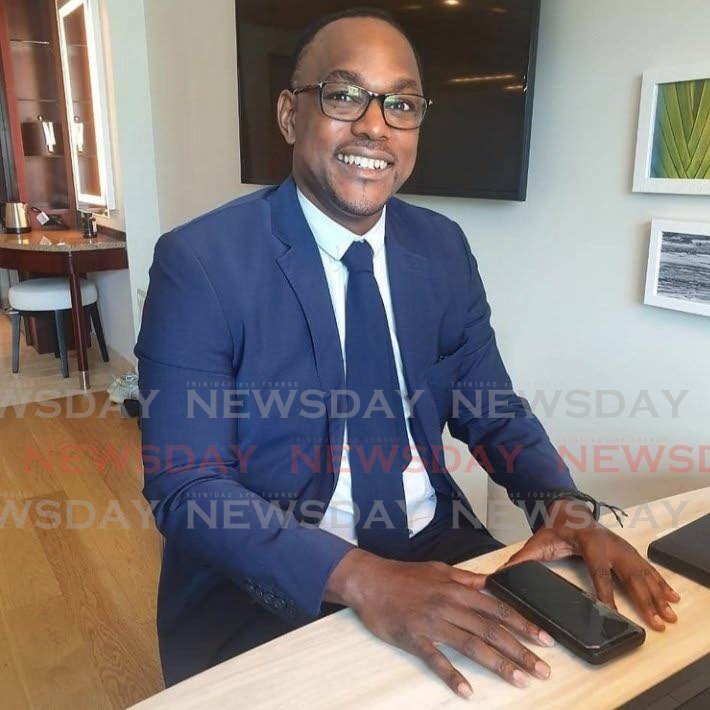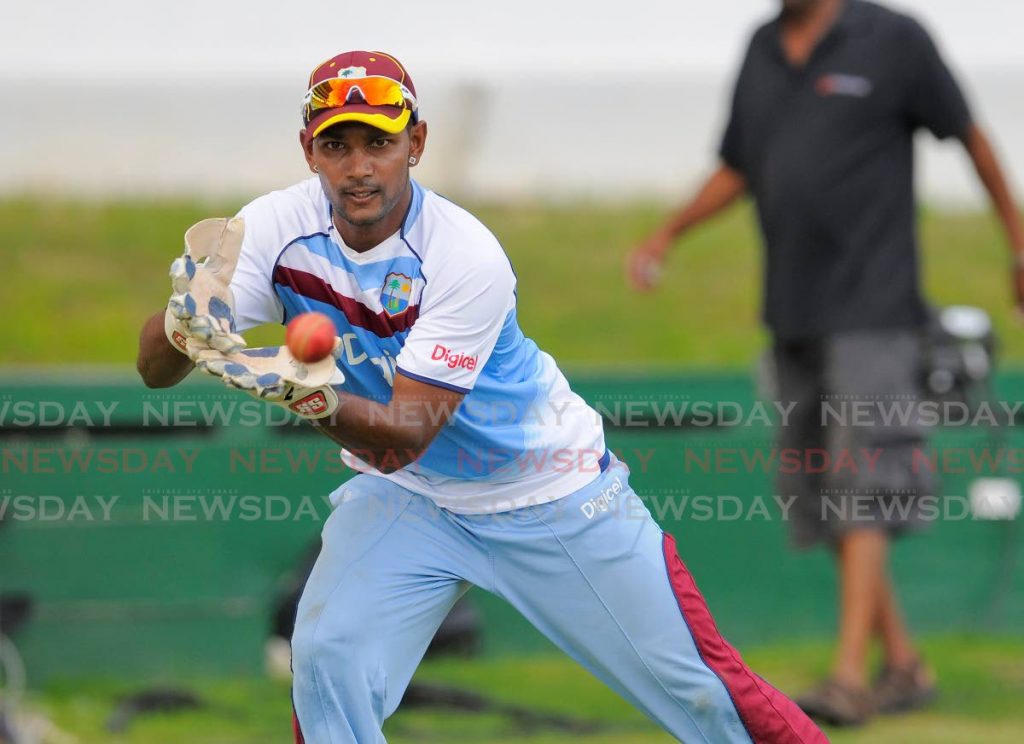Pain for athletes: Sports stuck on back burner

SIXTEEN months since the onset of covid19 in TT, sport remains firmly on the back burner of priorities.
The Government, in its attempt to curb the spread of the virus, which has killed over 850 people here, has banned all domestic contact sport leagues and only permitted athletes to train for international tournaments.
Recreational sport and outdoor exercise have also been prohibited.
The Prime Minister has made it clear that the measures are meant to preserve lives and livelihoods.
But what about the livelihoods of athletes?
It is yet to be seen how athletes who aren’t competing internationally or domestically will be affected by more than a year of inactivity.
Lessons from Jamaica
Around the region, sport is slowly kicking off again.
The Jamaica Premier League resumed last Saturday even though the country is under a state of emergency and curfew.
Domestic footballers welcomed a return to play but must adhere to regulations such as no spectators, no home games and competing in a bio-secure bubble during the shortened, three-month season. In order not to run afoul of the 2pm curfew, games will be played on Sunday mornings
According to the World Health Organisation coronavirus tracker on Friday, Jamaica has recorded 50,166 confirmed cases and 1,080 deaths. It has a population of 2.97 million.

According to the Ministry of Health’s daily covid19 update on Thursday, TT has registered 33,029 cases and 857 deaths. TT’s population is approximately 1.4 million people.
How did the Jamaica Football Federation (JFF) persuade its health authorities to reintroduce the top-flight domestic league amid a pandemic and under SoE regulations?
JFF president Michael Ricketts told Newsday it involved proper communication, understanding the importance of sport and its development on citizens, compromise from government ministries and trusting the return-to-play regulations would be adhered to.
“We have had extensive discussions with three ministries: local government, health and sport. Thank God they have bought in to our proposals and things are ready to start.”
Ricketts added, “We had put in place an interim committee that was tasked with responsibility of overhauling the Premier League. That was done and a new body was put in place.”
Ricketts said there was complete buy-in from his government who even aided with sponsorship.
“They (Jamaica’s sport ministry) have done an excellent job regarding getting sponsors on board. How it has been done is that each club has been assigned a sponsor and there are general sponsors for health, rehydration, etc.
“We have selected venues and we only play at the venues which would have passed the government protocol requirements.
Local sports stagnant
Locally, since the latter half of 2020, multiple national sporting organisations (NSOs) have approached the health ministry – the majority with return-to-play regulations from their respective international sporting bodies – requesting permission to resume activity. All have been denied on the grounds of covid19 prevention.
The TT Cricket Board (TTCB), Football Association (TTFA), Triathlon Federation and National Basketball Federation, among others, have all been blanked.
Tennis was permitted for a short time but has once again been halted.
The continued ban on sports has forced the cricket board to cancel a second consecutive season, local football is at a standstill at all levels and nationwide sport is stagnant.
Professional football remains sidelined, and only the national team is being permitted to train.
TT Football Association (TTFA) normalisation committee chairman Robert Hadad said, “We must respect the Government’s decisions and approaches in how they are managing the country. There are so many factors at play – from covid19 to vaccinations – and we simply cannot compare what is happening in other countries in an isolated manner, as each country is unique.
“We are of course excited for the restart of football. For some it is recreation, while for others it is their job and we understand that. Throughout it all, it is important for the process to be managed properly by the Government based on the health policy, and we stand by their decision,” he said.
Former TT World Cup defender and ex-sports minister Brent Sancho believes a return to play locally is possible – if the Government listens to stakeholders.
He reflected on TT’s successfully hosting last year’s Caribbean Premier League (CPL) T20 tournament at two venues in a bio-secure bubble, without issues.
The Government “moved heaven and earth for CPL to play,” he recalled, even though there was no vaccine at the time.
“Yet we (football fraternity) sent in something last year regarding youth football and we got no real reply.
“That was the only sporting event at that time in the Caribbean.

“How can’t they make way for other sports?...What is happening now? Sport is now not even a discussion,” he said.
Sancho questioned the Government’s decision-making when recreational contact sports – 22 people or fewer – were permitted in February this year, yet pro sports remained prohibited.
“When you can come out with a regulation that puts recreational football to be played first before organised league football, it tells you the type of individuals you’re dealing with. They don’t have a clue.
“Recreational football is not organised league football. If anything is to be resumed first, it has to be organised football, not a fete match,” he fumed.
The Central FC owner said TT football is dying a slow death and if players remain unemployed without football, they would eventually move away from the sport. This, he feels, should be of genuine concern.
Sport a non-essential industry?
Former TT triathlon champion and sport event organiser Jason Gooding recently announced his decision to migrate for economic reasons. Gooding’s Rainbow Warriors organises the popular Rainbow Cup triathlon and 5K –which doubles as the National Triathlon Championships – as well as other multi-sport events. His Odyssey Timing Company is also a top company used for local sporting competitions.
He posted on Facebook, “I have organised one race in over 15 months, other than that I have had no income...I feel like I am doing time for a crime I didn’t commit. Time to look for a different colony which would offer me a better opportunity for survival. It is not like I want to, but since March 2020, my job, my passion, my source of income has been deemed non-essential.”
In track and field, representing one’s country at the Olympics is a dream come true.
For some athletes, injury, illness, a bad day or even nepotism can cause that dream to go up in flames, as the Olympics are held once every four years.
The National Association of Athletics Administration (NAAA) sought to help athletes fulfil their dream by working with the health ministry. The NAAA was permitted to host a few developmental meets earlier this year, but these were stopped owing to the nationwide surge in covid19 cases.
With limited training, resources and a June 29 Olympic qualification deadline, local athletes had to settle for a two-day Olympic trial event, without heats. They were postponed because of curfew regulations, but were eventually allowed on June 21 and 27. No athlete was able to punch a ticket to Tokyo at the trials.
Some weren’t pleased with the opportunity and later travelled to Bahamas in June for a final attempt at qualifying. TT-based track athletes such as Jonathan Farinha, Akanni Hislop, Semoy Hackett and even Olympic medallists Richard Thompson and Keston Beldman were among a host of others who competed, but did not qualify for Tokyo.
Farinha said, “Everybody else around the world, even our Caribbean neighbours, is having track and field meets with the right protocols in place. Why can’t we?
“They clearly disregarded all of the athletes who were home, and we stood no chance.,,He said he only found out about the Bahamas trial at the last minute and had to take eight flights to get there.
Organisers understand – but athletes frustrated
Like other NSOs, the TTCB had a proposed schedule of events for 2021.
But since the significant rise in cases and deaths, which spurred the SoE, its president Azim Bassarath now supports the government’s decision to keep sport at bay.
He said, “I understand what the government is trying – to protect the citizens. Sport is not an essential service and will come at the right time. The cases are still too high to allow sports to resume.
“Let us hope for the best. We are not too disturbed that cricket is not being played, but very soon, as the vaccines become available, I am of the firm belief that cricket will resume very shortly.”
Bassarath added that the TTCB will make proposals to have some cricket restarted at the end of 2021 and early 2022.

Similarly, Ascension Football League organiser Richard Ferguson has come to accept the government’s approach.
“We live Trinidad. I’m not going to break the law,” he said.
However, he told Newsday, television deals, referees and contracts have already been signed for his league.
“We’re ready to go. We have been ready to go since May 2020. I’m sure it will be allowed soon,” he said.
He said his players (La Horquetta Rangers) have been paid monthly, even though they are not playing any football.
But Ferguson noted that they are frustrated.
“They are athletes. They want to exercise and train and run. We’re just waiting on the good Prime Minister,” he said.
Although some administrators have come to accept the circumstances, players are the ones mainly affected.
On the domestic halt, Queen’s Park batsman Kirstan Kallicharan, who scored 404 not out as a 14-year-old in 2014, said he was lucky enough to secure a contract with the national senior team.
“I was looking forward to the season this year because I’ve been training with the national senior team since July 2020. I’ve been preparing for a club tournament since then – and nothing happened.
“I was mentally all over the place, because you’re training so hard, but then there was nothing to look forward to.”
He added that several local club players are discouraged and have no zeal to train. Additionally, those who were fully employed with clubs (players and staff) are now seeking alternatives as a means of survival.
“They can’t even go outdoors and run, exercise or play any type of sport. It’s frustrating for everyone, not only cricketers.
“When the new season does get going, some of them may not have the opportunity to play cricket any more. So it’s taking away from their development.”
Former West Indies skipper Denesh Ramdin also lamented the state of the sport locally.
He said, “Guys who have contract with the board are using that. But guys who don’t have contracts, they are feeling it. Some guys depend on club cricket. I know a few players who fly out (to) the US because there are a lot of T20 tournaments going on. I’m happy for those guys. I would have gone too but I want to stay to give my family that support right now.”
He said the pandemic is taking its toll and with the CPL coming up, players are trying their best to get ready.
“The weather isn’t the best and training inside all the time gets boring.”
Shadow over future of TT sport
Sancho said the future of sport will be bleak if this continues for much longer.
“‘Covid19’ is always their answer. The only people suffering are the players, investors and those around it. It’s not going to bode well for the future of this sport.
“How can you see a young 18-year old that wants to go away on scholarship and prevent him or her from doing so? They are frustrated because they cannot provide a highlight video or answer (to coaches/colleges) when last they played. How is that going to work or help the young player?
“Not only are other Caribbean countries starting to get more advanced than us, they are now going to pull away the television, the corporate sponsors and these people.”
Newsday made multiple attempts over the past week to reach Health Minister Terrence Deyalsingh and Sport Minister Shamfa Cudjoe for a response on the possible resumption of sport and the impact of the covid19 regulations, but calls and WhatsApp messages were not returned. (with reporting by Stephon Nicholas)


Comments
"Pain for athletes: Sports stuck on back burner"